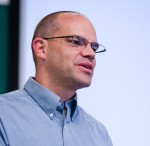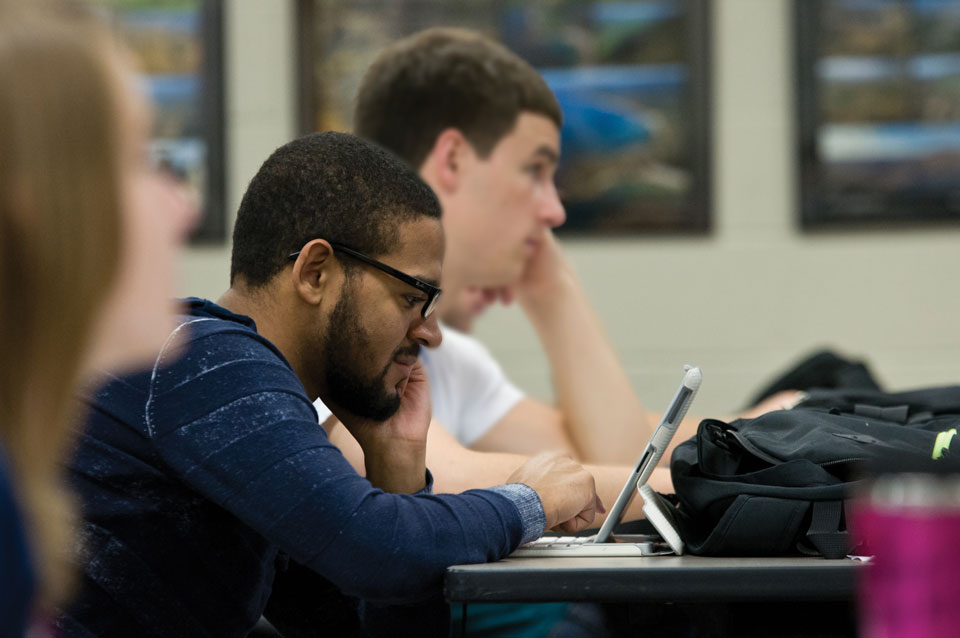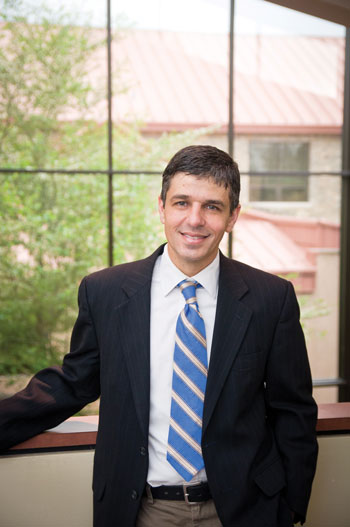In the early 1990’s, Cairn University added a Mathematics Education option to its Christian school and public school certification options. I excitedly signed up and became one of the first graduates of the program. Twenty years later, people are still surprised that our institution offers upper-level mathematics courses such as Calculus IV, Abstract Algebra, and Number Theory.
Through my undergraduate experience at Cairn, my graduate experiences at West Chester University and Temple University, and my career of teaching mathematics, I developed a great love for both the subject of mathematics and the craft of teaching it. However, I had to do some soul-searching and wrestle with some tricky questions: Why should someone study mathematics? Is it good to be a mathematician, or is it something simply permissible by biblical standards? Is mathematics something every Christian is compelled to study? What does a biblical study of mathematics look like?
Fast-forward to the recent history of Cairn University. As part of its commitment to preparing students to serve Christ in the Church, society, and the world, Cairn continues to strategically expand its program and degree offerings. We have extended beyond only offering what have traditionally been considered “service-oriented” majors, adding “liberal arts” majors.
In recent years, the School of Liberal Arts and Sciences began offering Bachelor of Arts degrees in English, history, liberal arts, and psychology. Furthermore, within these programs, students can elect to pursue specialization options such as pre-law, contemporary apologetics, European history, British literature, and counseling. In addition, minors are available in each of the offered majors.
As a result, as the dean of the School of Liberal Arts and Sciences, the type of questions I considered about mathematics have had to extend to all of the liberal arts and sciences. Why should someone study literature? Is it good to be an artist, or is it something simply permissible by biblical standards? Is history something every Christian is compelled to study? What does a biblical study of science, sociology, or psychology look like?
Why We Learn: To Love God and To Love My Neighbor
Why should I study? Why should I learn? Many answers have been offered by every culture and every sector of society throughout history. In the past, people have answered “to make oneself better,” “to prepare a ruling class,” and “to be able to read the Bible.” In our society today, the common answer is to get a job and be a productive member of society.
[blockquote align=”left”]At Cairn, we believe yes — that if taught and learned in the right way, the liberal arts push us to more deeply experience God and empower us to serve others more completely.[/blockquote]In our Philosophy of School Education class, students also wrestle with the questions related to the purpose and practical goals of education. I am always happy to see that they come to the right answer in general: to glorify God. However, when I ask them to be more specific, I have found that, in their first draft of their writing, they tend to have a viewpoint that neglects one of Jesus’ two practical injunctions: love the Lord thy God, and love thy neighbor.
This emphasis certainly is not in lieu of the Great Commission to make disciples of all nations, but helps us to move toward practical answers to the questions of the purpose of education and, in turn, some answers to my questions about the liberal arts. If I only study the liberal arts (or any subject, for that matter) in order to know and love God more, then I am a better individual who has a deeper appreciation for my Creator and His creation. However, I fall under James’ critique that “faith without works is dead.”
On the other hand, if I am only willing to ask the question, “When am I ever going to use this?” then I fall into a worldly trap. I am good for society and can fulfill God’s commands to care for widows and orphans and to subdue the earth and have dominion over it. However, I may soon find that I have “left my first love.”
In the end, if learning and education are not purposeful in helping us to both love God and love others, then something is missing. Education must have both vertical (heaven-oriented) and horizontal (earth-oriented) components. Are the liberal arts able to engage in both directions?
At Cairn, we believe yes — that if taught and learned in the right way, the liberal arts push us to more deeply experience God and empower us to serve others more completely.
How We Learn: In an Integrated Way
[framed_box width=”350px” borderColor=”8b2346″ align=”left”]
FACULTY SPOTLIGHT
Christopher Palladino
Assistant Professor of History, Humanities, & Social Science
- Chaired a panel discussion at New York State Political Science Association’s 2014 conference in NYC
- Delivering a series of addresses through International Schools of China this summer, focusing on social studies education, curriculum development, and pedagogy
On these occasions and others,Palladino has been recognized as an integrated thinker, whose broad expertise provides creative and innovative perspective on diverse topics.
[/framed_box]
What does an education that compels us to love God and love others look like? First and foremost, it is integrated. A disintegrated or fragmented view of education tears disciplines apart and, most appallingly, tears the “secular” from the “sacred.”
Consider the integration implicit in each of these three concepts from Christian thought. First, as Christians we hold to the dictum that “all truth is God’s truth.” Second, the apostle Paul repeatedly obliges us to be actively “putting all things in subjection to Christ.” Finally, Christ commands us to love God with not just part of us, but with our heart, soul, and mind.
Consequently, from a purely theological perspective, integrated study is necessary. Multiple disciplines weave together, guided by biblical perspectives, to build a more complete tapestry that enables us to love God richly and love others comprehensively.
At Cairn University in general and in the School of Liberal Arts and Sciences (SLAS) particularly, the programs, options, and courses prepare students with a biblically-based perspective on their chosen field of study. Furthermore, courses rigorously prepare students through intentionally promoting critical thinking and developing a broad base of interdisciplinary knowledge. Part of being “well-educated” is the intentional synthesis of being “professionally competent,” “biblically-minded,” and “of character.”
The SLAS faculty approaches integration with at least three notable understandings. First, integration is valuable. In an academic world that tears the disciplines apart, a biblical approach to learning requires that education be coherent. Not only are traditional subject connections important, but connecting biblical perspectives to professional training to character building is also essential for the complete education of an individual.
Second, not all integration is equally valuable. Integration from a biblical perspective is more valuable than trivial content and connections that do not impact the personal growth of an individual.
Finally, integration is done in the mind of the student. It is good for the faculty to be integrated people, but if they are not designing lectures, activities, questions, discussions, and assignments that require the student to make sense of the world and tie ideas together, then integration will not occur.
Theory to Practice
[framed_box width=”350px” borderColor=”8b2346″ align=”right”]
ALUMNI SPOTLIGHT
Abbie Keating
B.A. in Liberal Arts, ’13
- Pursuing graduate studies at the Institute of World Politics in Washington, D.C.
- Recently completed internship at the INTERPOL Operations and Command Center, assisting in the Translation Program and Foreign Notice Program
Continuing her focus in political science, Abbie builds on a robust understanding of God, the world, and herself gained from her undergraduate studies in Bible, theology, and the liberal arts. This foundation guides her to influence politics and society from a well educated, Christ-centered, and integrated perspective.
[/framed_box]
Theoretical discussion about the purpose and value of biblically informed education is valuable. However, it is particularly valuable to understand how this theory is enacted in practice. What are the impacts of these goals? What are the results of this type of education? What does integrated learning look like in flesh-and-blood? In answer, consider what happens at Cairn with the faculty and beyond Cairn with the graduates.
The boldness of Paul’s statement in Philippians 4:9 has always surprised me: “These things that you have heard and seen in me, practice these things.” We have to understand that the context in which Paul makes this claim is not a university classroom. However, it does bring to mind the concept of modeling. What do our students see in the faculty at Cairn University?
Students see faculty who engage society and the world for Christ. The calendar year 2014 will see SLAS faculty in China, Germany, Japan, and the Democratic Republic of Congo, as well as many conferences and workshops within the United States. Assistant Professor Christopher Palladino is one example of the SLAS faculty’s enthusiasm for engaging in and developing integrated, biblically minded thinking in the classroom and around the world.
In addition, faculty members are not only content area experts,but aspire to and practice integrated teaching and living. Their bookshelves frequently illustrate their diversity of reading. The Word of God is the authority in discussions and debates, not the strongest personality or most credentialed individual. Conversations within the school regularly cross subject matter lines and are grounded in theological reflection.
It may surprise many that 80% of the full-time and part-time SLAS faculty hold at least one degree in Bible or theology— including some advanced degrees—and that 100% hold degrees from more than one field of study. This type of faculty member thrives in an environment where integration is a major strand of what is done. Consequently, there is an intentional and purposeful focus in SLAS on integrating the curriculum between subjects, with theology, and to life.
We seek to help our students grow into graduates who are biblically minded, well-educated, professionally competent men and women of character. This type of graduate is afforded a legitimate seat at the table in his or her chosen field of study and consequently a seat at the table of cultural influence. Recent alumna Abbie Keating already exemplifies a global application of this type of service, ultimately pursuing a career combating transnational organized crime in human trafficking, arms trafficking, or drug trafficking.
Society needs men and women whose biblical perspectives come to bear on the questions of the day. A degree may be the entry ticket to the discussion, but it is only those who are fully prepared to engage in the issues that assert influence. Those with Christ-like character and a biblical perspective on relevant issues serve Christ in the church, society, and the world for the better.
[info] Dr. Jason VanBilliard ‘97 is the Dean of the School of Liberal Arts and Sciences. He has been teaching at Cairn since 2001. He can be reached at jvanbilliard@cairn.edu.[/info]
Dr. Jason VanBilliard ‘97 is the Dean of the School of Liberal Arts and Sciences. He has been teaching at Cairn since 2001. He can be reached at jvanbilliard@cairn.edu.[/info]


